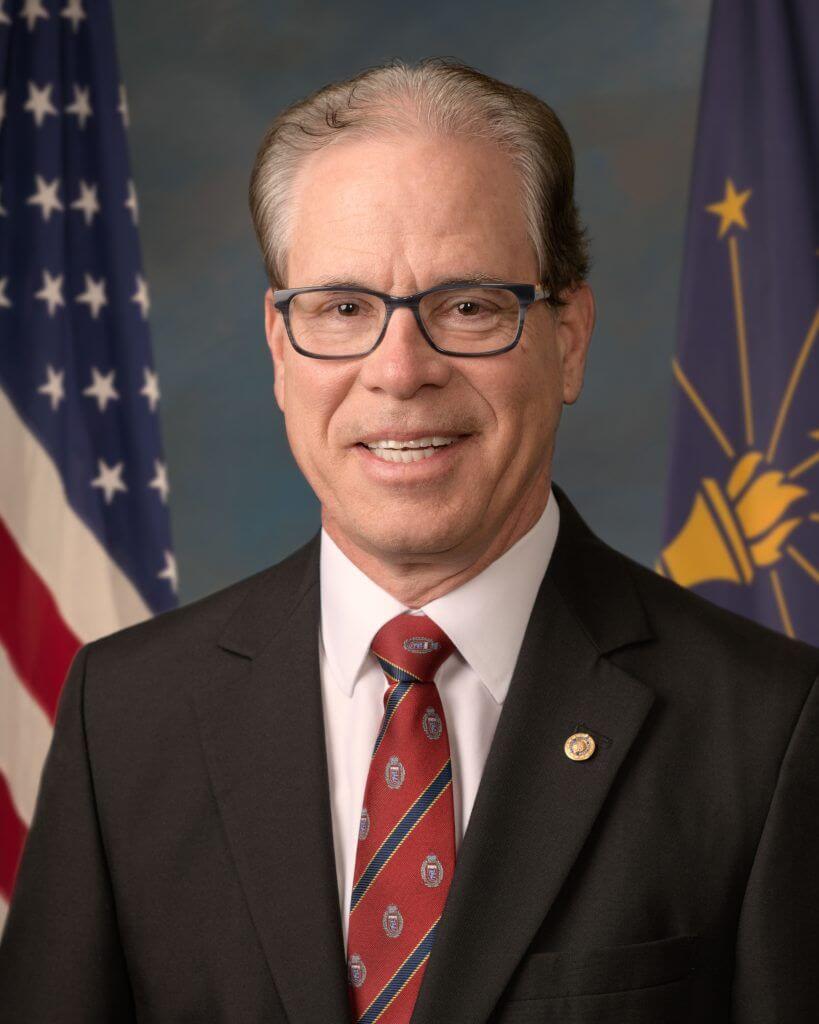1/28 Torchbearer Weekly Policy Update
Thank you for letting us be your trusted source for local, state, and federal policy updates. Let’s dig in…
- Inside Indiana's commerce strategy
- Indiana AG files lawsuit:
- Trump's order challenges DEI
- Braun’s Health Care Push
- Salesforce CEO on AI and DEI
- Share the Torchbearer Newsletter with Your Network!
- Important Dates
Inside Indiana's commerce strategy

Indiana’s new Secretary of Commerce, David Adams, is laying out a bold vision for regional economic development, aiming to drive business growth through a multifaceted approach.
Why it matters: Adams emphasizes the critical role of workforce development, which is central to Indiana’s economic strategy.
- By upskilling workers and aligning with employer needs, Indiana can better meet high-demand job requirements.
- The state plans to incentivize human capital development, recognizing the workforce as a vital asset.
The latest: Indiana is set to open an office focused on entrepreneurship and innovation, leveraging tech hubs in bioworks, microelectronics, and hydrogen.
- These hubs position Indiana as a leader in tech-driven industries, with companies like Eli Lilly and Elanco at the forefront.
What's next: Regional strategies will be tailored to specific needs, with a focus on attracting college graduates and developing ecosystems around major industries.
- Northwestern Indiana, for example, will focus on hydrogen technology linked to BP’s refinery, benefiting from cleaner energy solutions.
The bottom line: Adams’ comprehensive strategy is designed to boost Indiana’s economic standing, ensuring the state remains competitive and attractive to new talent and businesses. (Inside Indiana Business)
Indiana AG Rokita files lawsuit

Indiana Attorney General Todd Rokita has filed a lawsuit against St. Joseph County Sheriff William Redman, focusing on immigration cooperation.
Why it matters: Rokita accuses local law enforcement of hindering federal immigration efforts, which he claims contributes to national immigration issues.
- He emphasizes that state law requires cooperation with federal authorities, which he believes is not being met.
What they’re saying: The Sheriff's department counters Rokita's claims, asserting ongoing cooperation with ICE and compliance with state and federal laws.
- "We regularly communicate with ICE," they stated, challenging Rokita's assertions of non-compliance.
The stakes: This lawsuit highlights the tension between state and local law enforcement on immigration policy.
- The outcome could influence how local agencies interact with federal authorities and impact public safety strategies.
What's next: Rokita's team plans to pursue legal consequences if non-compliance continues, while the Sheriff's department prepares to defend its practices in court. (WSBT)
Trump's order challenges DEI

President Trump's new executive order seeks to roll back federal diversity and affirmative action policies, potentially affecting private sector DEI programs.
Why it matters: The order could lead to federal prosecution of corporate diversity efforts, marking a significant shift from previous government protections.
- It mandates federal agencies to target companies with DEI programs for civil enforcement, unsettling corporate America.
The big picture: The order dismantles longstanding federal tools for ensuring equal opportunity, impacting over 3.7 million federal contractor employees.
- Critics argue it contradicts the administration's stated commitment to equality.
What they're saying: Civil rights advocates see this as an attack on progress.
- "Anti-diversity is anti-business," says Brenda Castillo, emphasizing the economic power of diverse communities.
Between the lines: Despite the administration's focus, recent polling shows most Americans are not prioritizing the rollback of diversity programs.
- Many CEOs report that diversity efforts have positively impacted their bottom lines.
The bottom line: While some corporations may resist, many will further distance themselves from diversity initiatives in response to this order. (Axios)
Braun’s health care push

Indiana Gov. Mike Braun says he's taking steps to make health care more affordable, but critics say not necessarily more accessible, to Hoosiers.
Why it matters: Indiana has historically had some of the worst health outcomes in the nation.
- Life expectancy declined from 2010 to 2019 and is two years below the national average, placing us 40th in the nation.
- Plus: Hoosiers pay some of the highest hospital prices in the country.
Driving the news: Braun issued a series of executive orders Wednesday that he said "invest in a healthier Indiana."
- He ordered state agencies to identify additional safeguards against things like surprise billing and other practices that make health care more expensive.
- Other orders are aimed at rooting out fraud, waste and abuse in safety-net programs such as Medicaid and a federal drug pricing program.
Yes, but: Braun has proposed cuts to public health funding and suggested strategies to curb the number of low-income Hoosiers accessing health insurance through the state's Medicaid programs.
State of play: In 2023, lawmakers created the Health First Indiana program and increased the state's investment in public health spending by 1,500%.
- The program awarded additional dollars to local health departments that committed to providing certain services — such as tobacco cessation, improving birth outcomes, addressing obesity, and offering immunizations regardless of insurance status — aimed at improving Hoosiers' health and ensuring all communities had access to baseline preventative care.
- Last year, all 92 counties opted in to the program, which was funded at $150 million annually.
Follow the money: Braun's budget proposal would cut that funding by one-third.
- His administration has also directed insurance companies to stop advertising the state's Medicaid programs.
What they're saying: Critics say those moves go against Braun's promises to increase access to and transparency in health care.
- "Restricting information about Medicaid benefits undermines public health and equity, leaving some of our most vulnerable residents uninformed about their rights and resources," saidChrystal Ratcliffe, president of the Greater Indianapolis NAACP. "Access to health care should never be politicized or obscured — it is a basic human right."
Democrats at the Statehouse have also been critical.
- "If we want to rein in the amount we spend on Medicaid, the solution is not to kick people off of it but help them to grow off of it," said Rep. Ed Delaney, D-Indianapolis.
The other side: Braun's office did not respond to a request for comment about these concerns. (Axios)
Salesforce CEO on AI and DEI:
Salesforce CEO Marc Benioff predicts that today's CEOs may be the last to manage a fully human workforce as generative AI "agents" like Salesforce's Agentforce redefine productivity.
Why it matters: The integration of AI agents into the workforce introduces both unprecedented opportunities and significant risks.
- Benioff highlights increased productivity with Agentforce, suggesting a shift in workforce dynamics.
Zoom out: Amid AI's rise, President Trump announced substantial investments in AI infrastructure through a joint venture called "Stargate."
- Companies including OpenAI and Oracle are committing large sums, though Elon Musk questions the financial feasibility.
What they're saying: Benioff criticizes Microsoft's AI CoPilot, claiming disappointment in its performance.
- Despite this, Microsoft affirms its commitment to a strategic partnership with OpenAI.
The bottom line: As AI's role expands, the balance between innovation and error prevention becomes crucial.
- "This AI does not work if it's not grounded in data," Benioff warns, emphasizing the importance of data integrity. (Axios)
Share the Torchbearer Newsletter with Your Network!

Not signed up for our weekly newsletter? Sign up today!
Important Dates:

Wednesday, January 29th - State of the State
Monday, February 17th - House and Senate Committee Report Deadline
Wednesday, February 19th - House and Senate Second Reading Deadline
Thursday, February 20th - House and Senate Third Reading Deadline
February 24th - 28th - Crossover Break (no session)
Thursday, April 10th - House and Senate Committee Report Deadline
Monday, April 14th - House and Senate Second Reading Deadline
Tuesday, April 15th - House and Senate Third Reading Deadline
April 16th - April 24th - Conference Committees
Thursday, April 24th - Anticipated Sine Die
Tuesday, April 29th - Sine Die
